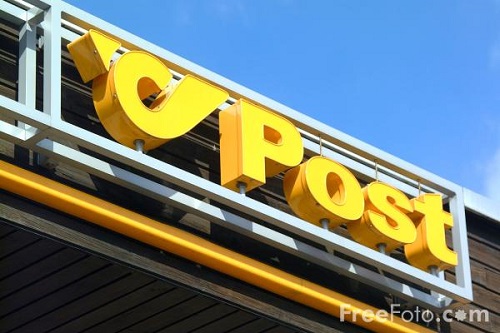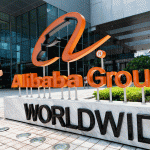
Leading from the top: TNT’s Peter Bakker
After winning the prestigious Industry Leadership Award at the 10th World Mail Awards, Mail & Express Review went head to head with TNT’s Peter Bakker, for an insight into the workings of the Dutch company.
Mail & Express Review August 2009 Following in the footsteps of some of the industry’s leading figures, such as Helge Israelsen, Jean Paul Bailly and John E. Potter, Peter Bakker was recognised by his peers as he was granted the Industry Leadership Award at the 10th World Mail Awards, held in Munich earlier this year. The judging criteria, set by the Award organisers, Triangle Management Services, state that the award “recognises the exemplary leadership of an individual in advancing the postal and mailing industry”. Fresh from this recognition, Bakker shared his views with Mail & Express Review on a variety of topics at the forefront the industry, including the current economic climate, developments in the German mail market, and sustainable development.
What do you think is the essence of good leadership in our business?
Leadership is about ensuring you have the right team of people aboard and then providing them with a strategic direction. In our industry people at all levels of the company are at the core of our success, so we have to do what we can to make them feel proud of the company they work for, to encourage them to go the extra mile to exceed our customers’ expectations.
In the current economic climate I think it is very important to confront the brutal facts, but it would be a big mistake to lose confidence. We are facing unprecedented volume declines, and yet I’m convinced the crisis also creates great business opportunities for those who see them. To quote business guru Jim Collins: “A crisis is a terrible thing to waste”.
How is the recession impacting TNT?
The global economic operating environment has remained challenging. Despite this environment, I am pleased with the quick response of our management teams around the world. Significant cost savings have already been achieved without any sacrifice in our service levels for our customers.
International express volumes are under significant pressure and domestic volumes saw declines as well, but as of February we saw no further acceleration in the decline. Our cost savings initiatives in Express have delivered results and are clearly ahead of our previously guided savings target range for the full year.
Mail performance was good but impacted by higher employee related expenses, a disadvantageous product mix and price pressure. With the Dutch mail market now fully open to competition, a further significant decrease in cost levels is required going forward.
Does the fact that TNT’s express business does not have the same global reach as other top integrators constrain the business?
No it doesn’t. TNT has a strong competitive position, TNT is number one in the European express market (excluding intercontinental) with a market share of 18% in 2007 (total: €21bn), ahead of DHL (16%), UPS (9%), La Poste (7%), Royal Mail (5%) and FedEx (2%). Please note that there is no industry consensus on the size of the market or the players’ market shares.
TNT has no exposure to the US domestic market, which has been divided between other players. FedEx and UPS together hold about 80% of the US market.
TNT’s wider express strategy is to:
– Strengthen its number one position in Europe in national and intra-European express flows.
– Build leading positions in selected emerging markets like India, Southeast Asia, China and South America.
– Provide a broad range of delivery products and services, interconnecting with the Mail division.
– Expand its position in special services.
How is TNT exploiting the opportunities in the B2C parcels market?
TNT’s express division mainly serves businesses. B2B is and will remain our core market. However, TNT’s express division is already active in the B2C market. TNT Express will not offer door to door express deliveries to private consumers unless volumes are large enough to arrange appointments with recipients. But we can explore other ways, such as delivering express parcels or documents to consumers’ working places, or allowing consumers to pick up their parcels at service points.
TNT takes a country by country approach. In France, for instance, we have partnered with Redcats, a subsidiary of PPR, to allow private consumers shopping on the Internet to pick up their parcels at 3,800 service points, often until 8pm, and sometimes on weekends.
The mail business in the Netherlands has been pretty effective in managing systemic decline and responding to increasing local competition whilst maintaining margins. How have you done this?
The mail business has been preparing its operations for years for a volume decline, from around 4% today, to around 6% over the years to come, resulting from higher levels of substitution and digitisation. We have implemented several so called Masterplans, which are aimed at adapting the organisation and achieving cost savings. TNT will reduce its workforce as much as possible through natural attrition and assisted re-employment. It is a regrettable situation that the union members rejected the in-principle collective labour agreement. As we have always said, this leaves TNT no choice but to develop and implement far-reaching restructuring plans.
TNT is pursuing a leading role in other European mail markets as liberalisation progresses. Has this strategy been as successful as originally anticipated?
Our strategy for the European mail market is to:
– Be the number one challenger in selected countries. Besides the Netherlands, the mail division of TNT is active in seven European countries: the UK, Germany, Italy, Belgium, Austria, Slovakia, and the Czech Republic.
– Optimise and grow our market position in a profitable way.
– Develop our position in the addressed mail market, where the risk of commoditisation is lower. However, barriers to entry are higher. We often enter markets in the areas of unaddressed mail in order to establish a foothold.
TNT Post in the UK has created a leading position in downstream access, but has struggled to come up with end to end solutions. Why is this?
TNT Post UK has a strategic aim to offer customers a complete postal and delivery solution and part of that ambition is to develop an end to end service in the UK. We are currently undertaking a trial in Liverpool, but we are restricted from rolling it out further due to barriers preventing new entrants from cost effectively developing an end to end service for customers.
Let’s turn to developments In Germany, where you have invested a lot of time and money putting a network together. Are you now making money there?
In Germany, we are Deutsche Post’s biggest competitor in a market characterised by decades of monopoly, massive distortion of competition (such as the lack of price control on Deutsche Post and its unilateral VAT exemption) and market entry barriers that include the grossly excessive postal minimum wage.
This demands a good dose of patience and perseverance, something that we have demonstrated. We have been investing in the German market for ten years now: new infrastructure, sorting and logistics, last mile delivery, quality management and, above all, our workforce. We have created over 6,000 new jobs in Germany that are subject to social security contributions. Recently (June 2009), TNT Post Germany strengthened its position by acquiring shares in the regional mail companies of the Georg von Holtzbrinck publishing group. With this strategic partnership TNT Post has increased its coverage for the distribution of letter mail items to more than 40% of all German households and will benefit from further regional growth potential.
During these ten years, TNT Post Germany has grown and our development is going according to our plans and expectations, but at the same time against the general trend in the German postal market. We currently have a market share of a mere 3%, and we are talking about Deutsche Post’s greatest challenger. As a result, our volumes are still too low to allow us to use our network to full capacity, which means that we are still not making any profit in Germany.
Are you confident the issues of pay levels for private operators versus Deutsche Post has now been resolved in your favour?
If you are referring to the grossly excessive postal minimum wage of up to €9.80 that was passed by ordinance in Germany in January 2008, I am unable to give you a final answer at this stage, as we are still involved in legal proceedings on the matter. Our interpretation of the law has been amply confirmed in two instances, by the Berlin Administrative Court and the Higher Administrative Court for Berlin-Brandenburg. Currently we are awaiting the decision of the Federal Administrative Court.
If you are referring to the unilateral VAT exemption granted to Deutsche Post, yet another source of massive distortion of competition, I am unable to provide you with concrete information on this matter either. We have learned that the legislative process to amend VAT legislation in the German postal market is being postponed until sometime after the parliamentary elections in September 2009.
In late 2008, the German government presented a bill on the matter, which was given a first reading in March 2009. Although the European Commission had ordered change to this unlawful situation, the discussions on the bill were then deferred pending a decision by the European Court of Justice. The ECJ made its decision in April 2009 and all conditions had been met for rounding off the discussion of the bill before the summer recess. Nevertheless, the legislative process was delayed without any reasons being given.
A reform of the existing VAT laws, which grant Deutsche Post a unilateral and unlawful VAT exemption, is urgently needed in order to implement the ECJ’s decision in Germany and to create fair competitive conditions and legal certainty for postal operators and customers.
How do you differentiate your offering from Deutsche Post?
TNT Post offers business customers in Germany regional, national and international mail delivery, direct marketing and consolidation. Customers value TNT Post Germany for its tailor made services such as time certain delivery. This enables customers to optimise and better manage their subsequent processes such as ensuring they have sufficient call centre staff to answer queries when a bill is sent out.
We also offer services such as free mail collection, billing in arrears, discount options and quality monitoring. Our customers benefit from dedicated and qualified local representatives; individual needs assessments, customer specific dispatch solutions and workflows. A personal approach to customers and their specific needs as well as an innovative approach to finding a solution instead of standardised products or an “automation officer”: that’s how we differentiate ourselves from Deutsche Post.
Can you update us on your retail strategy in the Netherlands?
In March 2008, TNT Post and ING announced that over the next few years they would be focussing on their own sales outlets for postal matters and banking. This means that over the course of the next three years, the services provided by the 250 head post offices will be transferred to TNT Post’s and Postbank’s own sites. TNT Post will transfer the postal service in every one of these Head Post Offices to three new shop integrated Post Offices. So a total of 750 new Post Offices will be opened in shops.
TNT Post’s services will be provided by 2600 shop integrated Post Offices, an increase of 750 over the next three years.
Does support for developing countries and sustainable development continue to be high on the agenda for TNT? Has the recession affected the way you are implementing these programmes?
I want to make TNT a success, fight hunger and save the climate, but at the same time we face laying off hundreds if not thousands of postmen and women because there is no longer any work for them. This can lead to conflict. There are staff wondering why we are not giving the €10m we spend each year trying to banish world hunger to our own employees instead. That would, after all, save a lot of jobs. I am open to discuss the matter, but not for too long. You can have a decent dialogue for a time but eventually I say: wait a moment, every five seconds a child dies of hunger and you surely agree with me that no matter how awful it is to lose your job, with good guidance and a good social plan, incidentally, watching your child die of hunger tonight would be a problem of a different order. Wouldn’t it? And as a company we have a responsibility to keep.
In recent years boardroom discussions have centred on growth, getting bigger and conquering new countries. Today it’s all about how much cash we have in the kitty and whether it’s being emptied a bit too quickly. Or about customers going bankrupt. Or whether things are going to get even worse and how we should deal with that. Sustainability will remain important, but first things first: your own business has to stay afloat in order to be sustainable.
Do you still see a future for the idea of a ‘world postal family’? Do you see an ongoing role for institutions such as the UPU?
I do, but to what extent institutions such as the UPU will play an agenda setting role in the future depends on their ability to recognise the need for change. For instance, the continuing decline of traditional mail volumes demands a new definition of universal service. The UPU will need to accept the new realities of the postal market and open up to other players in the market if it wants to sustain its future role.
With the ongoing recession still hindering the global economy, it seems that the postal industry needs strong leadership from the top in order to guide companies through the difficult market conditions and into the future – and TNT has its man in Peter Bakker.













